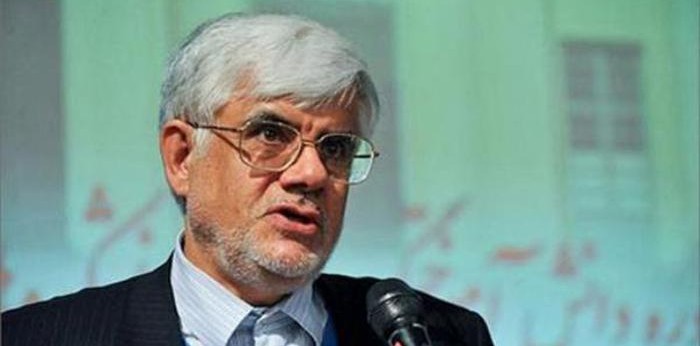PHOTO: Reformist leader Mohammad Reza Aref “Many institutions have not been penetrated by the slogan of change”
LATEST
In a sign of growing reformist dissatisfaction, leading MP Mohammad Reza Aref has criticized the Rouhani Government for not fulfilling its promises of change in the 2013 Presidential election.
Aref was a candidate in the election, but he stood aside just before the vote so reformists could back Rouhani, who won a surprising victory in the first round. The MP led efforts to forge a “List of Hope” coalition with Rouhani’s centrists in the February 2016 Parliamentary elections, leading to the coalition winning the largest share of seats in the Majlis.
But reformists have been unsettled by the Government’s inability to bring significant political and social change, including the freeing of political prisoners, and of allegations of corruption that have taken over Iranian politics and dampened hopes of an economic recovery after the July 2015 nuclear deal. Last week, it was revealed that former President Mohammad Khatami had complained about the behavior of Government ministers during a meeting with Rouhani after the Parliamentary elections.
It seems like many institutions have not been penetrated by the slogan of change that the people voted for in 2013…Fifty to sixty percent of managers in institutions are from a previous era and do not assist the administration….Why haven’t some directors who came to power due to the excuse of the [conservative-dominated] 9th Parliament been changed?
What has been done to change the security atmosphere in universities?…Students must be free to give their thoughts and opinions in universities.
Aref even said that members of the List of Hope are considering impeachment of “some ministers”.
The Government is already under sustained pressure from hardliners, including the Supreme Leader, who accuse it of weakness towards the US. Ayatollah Khamenei has rebuked Rouhani for his declaration of a plan for post-sanctions recovery, and warned that he could take control of economic policy for a “Resistance Economy” of self-sufficiency.
The political in-fighting has been reinforced by the “payslips scandal”, in which officials throughout the Government and State institutions have been accused of receiving exorbitant salaries, bonuses, and perquisities. Hardliners have used the controversy to aim at 1st Vice President Eshaq Jahangiri and Rouhani’s brother and advisor Hossein Fereydoun.
See Iran Daily, August 31: Rouhani Points to Corruption — But Doesn’t Name Names
Iran Steps Up Criticism of Turkish Intervention in Syria
Iran has stepped up its criticism of Turkish military intervention in northern Syria, with the Foreign Ministry issuing its second statement in three days.
Spokesman Bahram Qassemi said on Friday:
Although the fight against terrorism and efforts to maintain regional stability and security are an unchangeable and important principle in the foreign policy of peace-seeking countries in the region, this issue cannot and should not be used as a justification for violating the territorial integrity of another country by conducting military operations against that country without coordination with its central government, and by overlooking its national sovereignty.
Iran was initially reticent about Turkey’s aerial operations and entry of tanks and special forces on August 24 to support rebels in northern Syria, both against the Islamic State and the Kurdish-led Syrian Democratic Forces. Tehran has been courting Turkish President Recep Tayyip Erdoğan, hoping to end his support of the Syrian opposition and rebels and his desire for the overthrow of Syria’s President Bashar al-Assad.
However, Qassemi introduced Iran’s critical line on Wednesday, using almost the same words as today’s statement.
See Iran Daily, Sept 1: Tehran Finally Criticizes Turkey’s Intervention in Northern Syria

